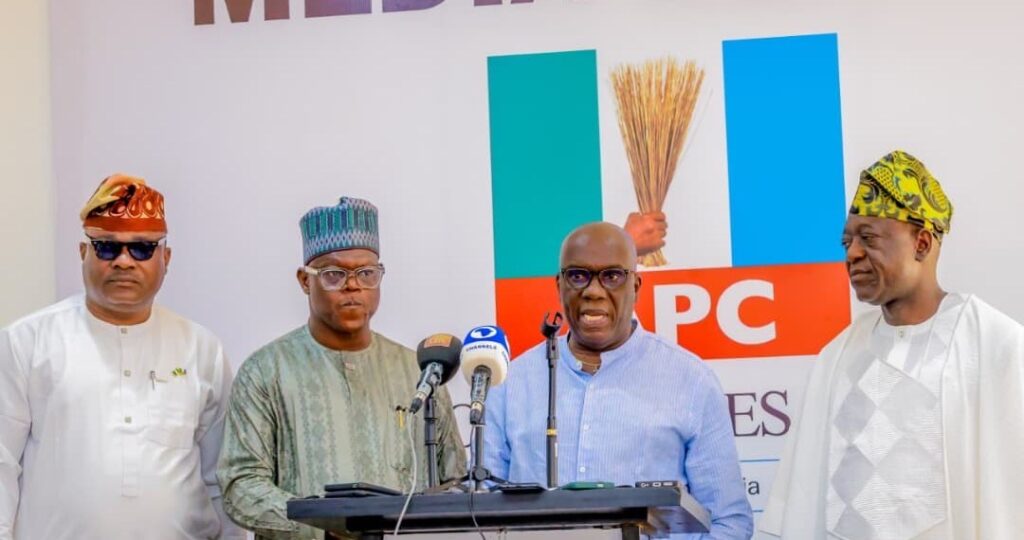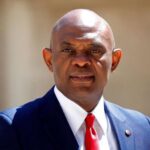Nigeria at 65: Our Economic Journey and the Promise of Recent Reforms

By Comrade Bamidele Atoyebi
As Nigeria celebrates 65 years of independence, it is important not to just wave the flag, but to reflect on how far we have come economically, what lessons history has taught us, and what recent reforms may mean for our collective future.
At independence in 1960, Nigeria’s Gross Domestic Product (GDP) was about US$4.2 billion, with a population of roughly 45 million people and per capita income estimated at US$93.
Agriculture was the backbone of the economy. Cocoa in the West, palm oil in the East, and groundnut pyramids in the North fueled exports and provided livelihoods for millions.
But the discovery of crude oil in commercial quantities transformed everything. By the 1970s, oil revenues had become the lifeblood of government budgets.
While this funded roads, schools, and ambitious infrastructure, it also exposed us to global oil shocks, encouraged rent-seeking, and gradually weakened the agricultural base that had once sustained us.
Elder statesman Alhaji Tanko Yakassai recently reminded Nigerians in an interview that those who judge Nigeria’s current condition without reference to history miss the bigger picture.
In his words:
“From 60 years ago till now, we are in control of our destinies. Every administrative move is under the control of Nigeria, which was not so before the present administration. Sadly, someone who does not know where Nigeria was before cannot make an informed decision about Nigeria today.”
This perspective unveils a vital truth: to appreciate Nigeria’s progress, one must remember where we started.
A major turning point came in 2014, when Nigeria rebased its GDP calculations for the first time in over two decades.
Suddenly, the economy appeared almost 90% larger, not because money had magically appeared, but because new sectors like telecommunications, Nollywood, and digital services were finally counted.
Once again, in 2024, rebasing updated the base year to 2019, raising Nigeria’s GDP to ₦372.82 trillion (US$244 billion).
Agriculture’s share rose by 3.2% in Q1 2025 after rebasing, showing that farmers’ contributions had long been underestimated.
These revisions reveal that Nigeria’s economy is more diverse and resilient than official figures had often reflected.
Today, under the leadership of President Bola Ahmed Tinubu, Nigeria is undergoing another crucial economic transition. His government has introduced difficult but necessary reforms aimed at stabilizing the economy and redirecting resources toward the people.
Subsidy removal has redirected funds once enjoyed by the wealthy into Nelfund, TIVET programs, and loan facilities for lecturers.
Conditional cash transfers of ₦75,000 and ₦25,000 have reached between 15 and 75 million vulnerable households.
Dialysis treatment costs have been cut from ₦100,000 to ₦12,000, easing the burden on poor households.
External reserves have risen to over US$42 billion, while Nigeria posted a US$6.83 billion balance of payments surplus in 2024, strengthening the naira and boosting investor confidence.
GDP growth improved to 4.23% in Q2 2025, up from 3.48% the previous year — a sign that reforms are beginning to take hold.
Importantly, the naira has shown new signs of stability. In September 2025, it recorded its most stable run of the year, trading consistently below ₦1,500/$ at the official window. It strengthened from ₦1,526/$ at the start of the month to around ₦1,475/$ by month’s end, while the parallel market also firmed to around ₦1,495/$.
This contrasts sharply with the turbulence of 2023–24, when the naira fell rapidly and market gaps widened.
This stability has not gone unnoticed internationally. The Director-General of the World Trade Organization, Dr. Ngozi Okonjo-Iweala, recently acknowledged the efforts of the president and his renewed hope team
In her words; “the president and his team have worked hard to stabilize the economy, and you cannot improve an economy unless it is stable. He has to be given the credit for the stability of the economy. The reforms have been in the right direction.”
In the oil and gas sector, production is also recovering. In July 2025, Nigeria met and even slightly exceeded its OPEC quota, producing about 1.5 million barrels per day of crude oil.
By August, output had risen further to 1.63 million barrels per day, a strong 96% of its OPEC crude quota.
These improvements show that reforms and better security in the oil-producing regions are beginning to yield results.
Yes, we are not yet where we envisaged to be economically. Nigeria can be more, and should be more.
This reality means that implementation of reforms must continue by those who truly understand Nigeria’s needs, ensuring that the average citizen not only feels growth on paper but experiences it in daily life.
At 65, Nigeria’s economic story is one of resilience and reinvention. We have moved from agriculture to oil, from stagnation to rebasing, and now to reform.
The current government’s steps are painful in the short run but may prove pivotal in laying the foundation for inclusive, sustainable growth.
The lesson of our journey is clear: policies must prioritize people, not just macro indicators. Infrastructure, healthcare, and education must become central pillars of growth.
Nigeria cannot rely solely on oil or statistical rebasing; our true wealth lies in our people, their innovation, resilience, and hard work.
As Alhaji Tanko Yakassai rightly put it, perspective matters. To know where we are today, we must understand where we were yesterday. And compared to 1960, Nigeria has taken bold ownership of her destiny.
As we celebrate this Independence Day, let us recognize both how far we have come and how far we must still go.
With unity, patience, and commitment to reform, the promise of a prosperous Nigeria remains within reach.
Happy Independence Day, Nigeria!
Bamidele Atoyebi is the Convenor of BAT Ideological Group, National Coordinator of Accountability and Policy monitoring and a publisher at Unfiltered and Mining Reporting









